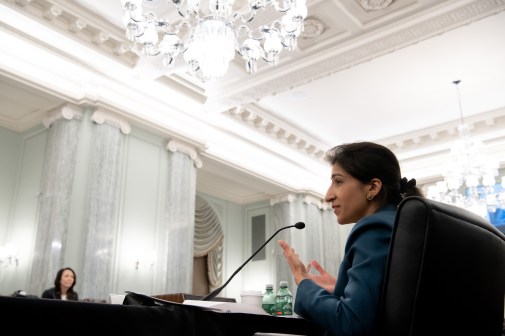Budget uncertainty plays havoc with intelligence planning, ODNI director says
Budget uncertainty continues to play havoc with acquisition and workforce planning within the intelligence community as the specter of a new round of budget cuts hangs over the government, according to James Clapper, director of the Office of National Intelligence.
Uncertainty is the best way to describe the current budget environment for intelligence as the government enters fiscal year 2016 facing another year of sequestration, depending on what happens in Congress, the ODNI director said. Moreover, that uncertainty isn’t expected to end in the near future, making planning for fiscal 2017 and beyond difficult for the intelligence community, he said during remarks delivered at an intelligence and national security forum on Wednesday.
“We have 30 or so major system acquisitions to manage across the IC and it plays havoc when you don’t know what the budget situation is going to be,” Clapper said. “And, of course, it has a huge impact on our most valuable asset, which is our workforce.”
ODNI has served as a litmus test over the last four years, he noted. He would like to think ODNI has earned its keep with responsible spending. Now, ODNI has to determine where to cut. The “first priority is to protect the workforce,” he said.
Clapper made his remarks Wednesday at the Intelligence & National Security Summit co-hosted by INSA and AFCEA in Washington, D.C. After a brief keynote, Clapper answered questions from John Negroponte, the first director of National Intelligence and a former U.S. ambassador, and the audience.
An influx of new talent came into the intelligence community after the Sept. 11, 2001, terrorist attacks, Clapper said. Now the attrition rate is not all that high. Given the current budget situation and stipulations of the Budget Control Act, there aren’t going to be a lot of openings.
Clapper noted that the workforce of the future will be younger and more mobile.
“We need to be able to facilitate the ability of young people to come to the community and go to industry, get refreshed technologically, and come back to the community,” Clapper said. The younger workforce is interested in technological challenges, not necessarily in staying with an institution for 30 years.
Clapper also used the occasion to emphasize the need for the intelligence community to be transparent.
“Yes, we have to protect our secrets, sources, methods and tradecraft but we have to be more transparent about the things we can talk about,” Clapper said. “Now the American public expects us to talk about how we are using the power of U.S. intelligence responsibly.”
That is a lesson the intelligence community did not learn quickly enough, he said. So the intelligence community is now correcting misunderstandings and discussing its work. For instance, ODNI recently released 5,000 pages of declassified material via social media.
Clapper also said he is “pretty confident” the U.S. intelligence community can monitor and verify that Iran is in compliance with all of the requirements of a nuclear agreement with U.S. and six other nations, if it goes through.
“We are fielding some independent capabilities that I can’t go into that will enable us to have good insight into the nuclear-industrial enterprise of Iran,” he said.






